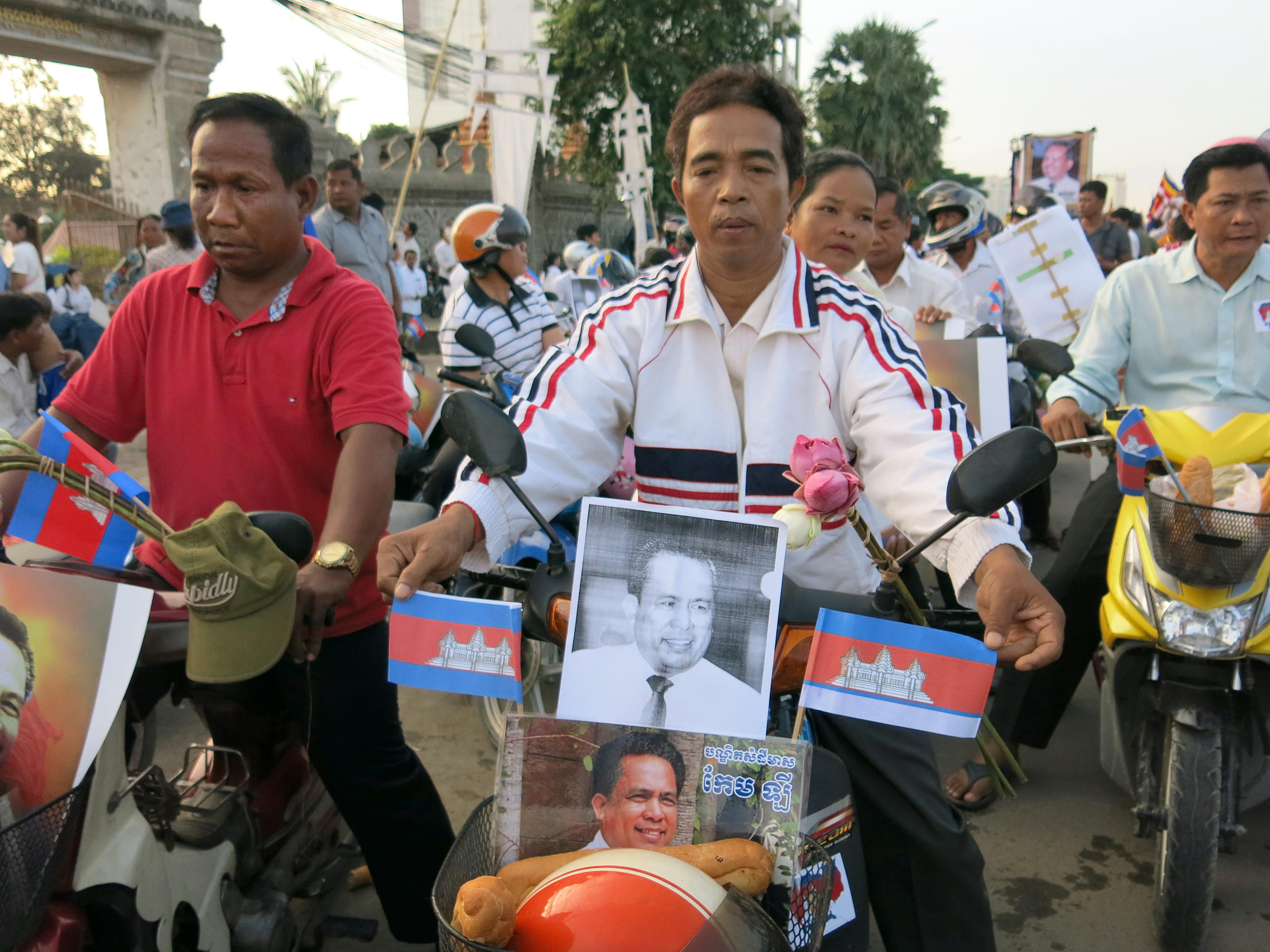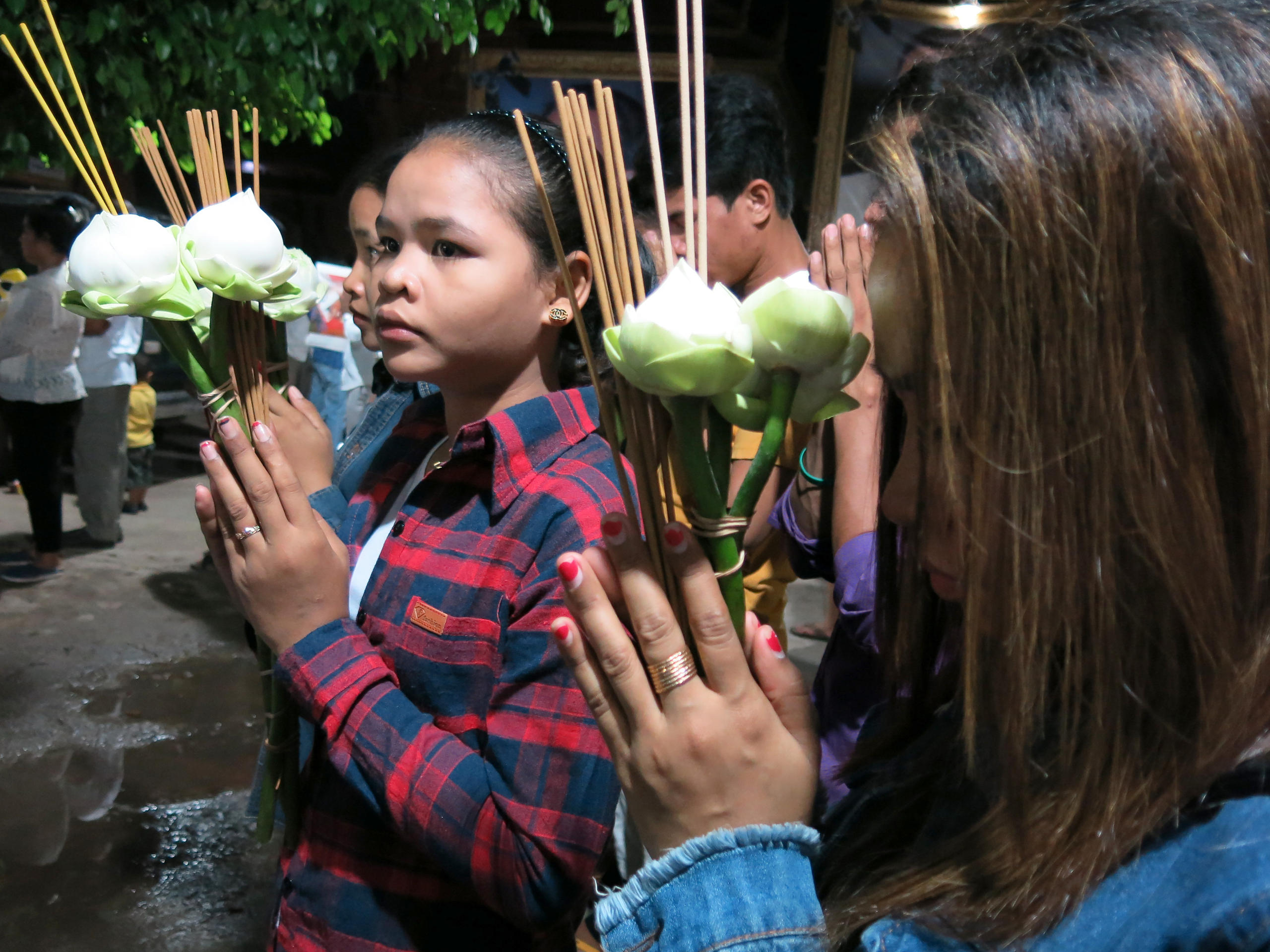
Cambodia’s direct democracy weakened but not broken

Democracy was dealt a heavy blow when Cambodian political analyst and democracy proponent Kem Ley, was killed in July, in what appears to be a political plot. The party co-founded by Kem continues determinately along its path.
“The death of Kem Ley is a loss, but he woke up the youth, he woke up hundreds of thousands of people,” says Yeng Virak, president of the Grassroots Democracy Party (GDP). “And today a growing number of people now dare to speak out.”
According to Yeng there are Kem Leys everywhere in Cambodia. These less well- known voices defend the same values of justice, solidarity and non-violence, freedom and integrity. These women and men dare to criticize the authoritarian regime of the Cambodian People’s Party and its Prime Minister Hun Sen at the head of the State for more than 30 years.
During the last election in 2013 Kem Ley also criticised the opposition party for its lack of internal democracy. According to the founding fathers of the GDP the opposition didn’t offer the alternative for which many Cambodians yearned. “These parties only produce followers. Our mission is to produce good leaders, not followers,” explains Yeng.
It will therefore be a major challenge for the GDP to tackle a widespread system of patronage that has pervaded Cambodian politics, its society and economy.
The non-governmental Global Witness organisation published two reports in 2007 and 2016 exposing the extent of the control Hun Sen’s family and his networks have on the key sectors of Cambodia’s economy.
According to GDP, the only way to counter rampant nepotism, corruption and systemic intimidation is direct democracy. Since one year, opposition and civil society representatives have faced recurrent threats.

“Cambodians traditionally consider their political leaders as God-like figures. The leaders have promoted this ideology. They believe in their superiority; they guarantee a future and protection for those who support them. This practice has been reinforced until today,” says Yeng. “You can call it brainwashing,” he adds.
Local level
However, another Cambodia already exists according to Yeng.

More
Who’s behind the murder of Kem Ley?
Beside the strict centralisation of power where nobody takes any decision without having asked their superiors beforehand, there is a superimposed structure. In many different areas at a local level, Cambodians practice democracy daily. Be it in agricultural associations and cooperatives, local savings groups, or in pagoda committees.
It is a system with elected representatives and a control mechanism for the electorate and decisions taken collectively. Cambodia’s direct democracy could grow within such structures at a local level.
Both in bilateral contacts and in the context of multilateral initiatives Switzerland has expressed concern at the restrictions of basic rights and democracy introduced by the Cambodian government.
During the June session of the Geneva-based Human Rights Council, the Swiss representative called on Cambodia to respect international obligations.
Also in June, Foreign Minister Didier Burkhalter met Cambodia’s interior minister Sar Kheng for a courtesy visit in Bern. A foreign ministry statement said Burkhalter stressed the importance of human rights, the separation of powers as well as the “maintenance of an environment conducive to democratic dialogue for ensuring peace, security and prosperity in all countries.”
Following Kem’s assassination on July 10, the Swiss foreign ministry called on the Cambodia’s foreign ministry to carry out an in-depth inquiry into the murder.
Switzerland sent official condolences to family of the Kem, according to a spokeswoman of the Swiss Agency for Development and Cooperation. The Phnom Pen office of the agency worked closely with Kem.
Switzerland earlier this year followed other European countries in expressing concern about developments in Cambodia as part of the Joint European Strategy for CambodiaExternal link.
Frédéric Burnand, swissinfo.ch
The GDP has been encouraging participants in local associations to play an active role in politics. But it is difficult to convince them to join the party due to a high risk of pressure or reprisals.
Close to tears, a woman in the capital, Phnom Penh, shared that she could not mourn the death of Kem with her neighbors, known to be supporters of the regime, for fear of being struck off the electoral lists.
Another example: a village chief, who refused to stop his son from joining the GDP, no longer gets his salary.
Constructive criticism
One of the political analyst major strength was his ability to point out the blurring of borders between ruling party, state and economy.
Kem, a 45-year old trained medical doctor and researcher of social sciences, was regularly called upon by the media to comment on Cambodia’s ills.
His outspokenness made him Cambodia’s most popular social commentator.
He not only expressed well-founded and constructive criticism, which was based on research in the field.
Kem was also known for providing concrete recommendations. Many fellow Cambodians considered him a “man of truth”, somebody who was close to the people.
His assassination in July made him a national hero as illustrated the huge crowd of people —an estimated 1.5 million— who attended his funeral.
The murder also led to a noticeable increase in the number of GDP memberships, the party which Kem co-founded in August 2015 in the hope of changing practices inside political parties.
However, Kem did not want to play a key role in the new GDP, he considered himself primarily as an initiator.
With a certain idealism, the GDP has emphasised that it belongs to its members and they hold the ultimate decision making authority in the party.
The GDP is unique and outside the norm of the political system of Cambodia or another Southeast Asian state with its policy platform. It is based on a mix of local participatory models and taking inspiration from other states – the Swiss system of direct democracy with votes on issues, the electoral system in the United States with primaries as well as the coalition government in Germany.
The GDP’s challenge will be to convince the Cambodian voters of the value of its unusual principles during next year’s local election.

In compliance with the JTI standards
More: SWI swissinfo.ch certified by the Journalism Trust Initiative






























You can find an overview of ongoing debates with our journalists here . Please join us!
If you want to start a conversation about a topic raised in this article or want to report factual errors, email us at english@swissinfo.ch.